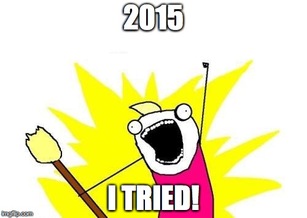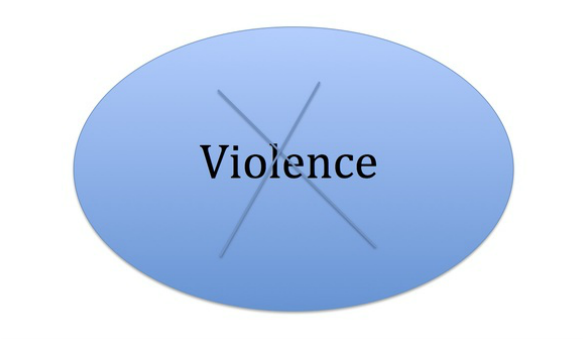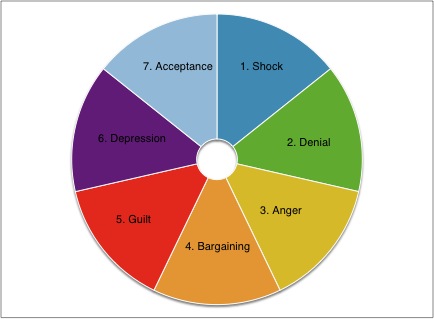|
We’ve just entered March, and I fully feel the pull of busyness and distraction that will send us hurtling even further into 2018 before we know it. Perhaps your schedule, too, is filling up with various events and gatherings and obligations. I have to regularly remind myself to pause and to allow each day to be its own, rather than a fraction of a countdown. It takes effort, and hopefully you are creating space for stillness as well. To that end, I offer the following to feel rested, restored, and resourced for these days and every day. Find a quiet space. This can be anywhere. You’ll want to have a wall (or headboard) clear and make sure you can keep the lights dim. Naturally, this means lights out for cell phones too. Prepare Make sure you have a support (such as a yoga mat, or use your bed) to lie back upon and blankets, socks, sweatshirt if you tend to get cold. Take your time to make it comfortable. (Hint: pretend you are setting it up for someone you love!) Come into position. You can stay resting with knees bent, feet flat, or try “legs up the wall” pose. For that option, take one hip to the wall and then swing your legs up the wall. Don’t over think it – find the position that feels the most appropriate and then lie back on your back. Notice if you find you need to make any adjustments from there (maybe shifting hips forward or back) and give yourself that time to shift. Your hands can rest on your abdomen or by your sides, whichever is most comfortable. It may feel nice to have a cushion or pillow rest on your low abdomen, with your hands on top. Legs can stay straight or take the soles of the feet together, knees wide: Your choice! Stay Scan your body and notice any tension. Imagine smoothing it out with the breath. Set a timer if you need to – it may help to support allowing yourself the opportunity to rest! Give this practice a go. What benefits do you reap? -Maureen Kelleher, ATR, LPC
0 Comments
Feeling Stuck? On the other side of the spectrum from fearing change are those instances where we are so anxious for change to occur; we feel our mood dip and our motivation drain away. These are the times we may feel stagnant or stuck. It can happen in so many ways. Perhaps this has happened in a job situation; you are no longer experiencing excitement and growth and you find yourself deep in the cycle of Sunday evening panic and Friday afternoon elation every week. Or, in a relationship, you are struggling to move past challenges and conflict and can’t seem to find the way ahead. Maybe, instead, it’s emotion that feels stuck, whether grief, sorrow, or anger. Experiencing “stuckness,” may be what leads us to seek a therapist to collaborate in journeying toward goals. That said, a key component to this process is collaboration, and there are steps you can take to start to feel more ease. Consider the following in beginning to move forward: Clarifying Become clear about what you do want rather than focusing on what you don’t want. You can use journaling, art-making, and meditation or self-reflection to support this effort. Did you discover you already have some of the qualities or things you want within the current situation? Take a moment of gratitude and then set your course for attaining the rest. Goal-setting Start small and make each goal measurable and attainable. Hold yourself accountable (and your therapist can help with this too!) by checking off steps you have completed and revising those that no longer fit. Make sure to write your goals using impactful, positive language. (For example, starting with “I am ” rather than “I’ll try” or “I won’t.”) Becoming Aware Keep in mind the things you are telling yourself along the process. Just as you did in the clarifying process, consider keeping a journal or a list of things for which you are grateful. Notice, without judgment, what happens when you start to feel discouraged. Take a deep breath. Reset. Tell yourself something positive. Notice what you can do rather than what you can’t. Get Moving Literally – move! Take a walk, go to a yoga class, do some gentle stretches to ease tension. Feeling stuck emotionally or mentally can lead to feeling stuck physically. Endorphins from physical activity will support your overall efforts. Keep your body in mind and consider how you fuel yourself. It may be helpful to remind yourself of times you have been in this place before and succeeded. Consider seeking support, knowing that others have been here too. Keep your vision in mind – undoubtedly, its realization is just ahead. -Maureen Kelleher, ATR, LPC Image credit: freeimages.com Each year, as the new year begins, there is quite a bit of pressure from all sides to make changes, big changes, and to make them right away. But what if there is a different way? Maybe changes can happen in small ways and maybe they can happen in the time you set. Consider the following: Slow down I know, I say it all the time, but truly, take a breath. Maybe three. Or ten. Think about one thing you’d like to change. Is it cleaning out the car or maybe the attic? Or maybe it’s taking more vacations? Pick one thing, big or small, that comes to mind. Map it out Consider how long it will take to achieve this change, and how long you are willing to give yourself. This is your timeline, but make it specific. “I will clean out the trunk of my car by the 15th of this month.” Know your Why Why do you want to clean out the car? Why do you want to make more time for vacation? This is important to maintaining motivation. Make sure the reason comes from you. For instance, “I will plan and schedule a vacation in the next 45 days because it is important to me to practice good self-care.” Commit Make a commitment to you. Reserve the right to change your mind about your goals, but know your why. Maybe, “I will not clean out the trunk of my car because it serves to me to keep it messy.” Hey, they’re YOUR goals. Own it. See what happens. Prepare for your own success. -Maureen Kelleher, ATR, LPC Photo credit: freeimages.com As the holidays quickly approach, many of us may be struggling to experience joy through the thickness of other, perhaps heavier emotions. I hear sorrow, fear, anxiety, and stress expressed and echoed this time of year. Loss, family conflict, and pressure to achieve perfection all contribute to making this celebration a challenging one. In response to these stressors and others, we may find ourselves—especially those of us with a history of disordered eating—challenged by the food that surrounds the holiday.
Our culture sends mixed messages of both excessive consumption as well as restriction during this time. We are encouraged to indulge without sacrificing our appearance. There is little guidance or encouragement offered with regard to balance, and—in the chaos—there is little joy or giving of thanks. In the face of ambiguity and lack of control, it can be tempting to fall into restricting/compensatory and/or binge-eating behavior and this season seems to highlight that struggle. In this article, I aim to offer hope and a return to the gratitude that this season and holiday intends. To that end, I reached out to local Registered Dietician Nutritionist and Intuitive Nutrition Health Coach, Katie Abbott, MS, RDN, INHC (katieabbottrd.com), to share her insight. Below are her tips on Intuitive Eating for the Holidays. Make Peace with Food There seems to be so many “forbidden foods” around the holidays. However, it is important to give yourself unconditional permission to eat. If you tell yourself that you can’t or shouldn’t have a particular holiday food, it can lead to overwhelming feelings of deprivation that could potentially build into intense cravings or even bingeing. When you finally give-in to your forbidden food, eating can be experienced with such intensity, that it usually results in overeating and guilt. When you give yourself permission to enjoy that favorite holiday treat, perhaps pumpkin pie at Thanksgiving, then you may be more likely to say "no thank you" to the store bought sugar cookies or dried out fudge in the office or at school parties. Hara Hachi Bu Hara hachi bu means to eat until you are 80% satisfied. During the busy holiday season, we often overlook one of the most basic gifts of existence – the pleasure and satisfaction that can be found in the eating experience. When you eat what you truly desire, in an environment that is welcoming and supportive, the pleasure that grows will be a powerful force in helping you feel satisfied and content. Not only are we nourished by food, but we can feel nourished by this pleasure and satisfaction as well. By allowing yourself to experience this, you will find that it takes much less food to decide if you’ve had “enough”. We all have a basic inner wisdom when it comes to eating, and if you can cultivate that wisdom, you will be able to listen to when your body is 80% satisfied. Maximizing pleasure around food is a wonderful motivator to choose foods that taste good and feel good to your body. Honor Your Feelings without Using Food Depression, anxiety, loneliness, boredom, anger, and stress are all emotions that everyone experiences throughout their lifetime and maybe even around the holidays. It is important to remember that food will never fix any of these feelings. When a feeling does not originate from food, food will never satisfy it. Food may comfort in the short term or maybe even numb the feeling temporarily, but food won’t solve the problem. If anything, eating for an emotional hunger will only make you feel worse in the long run. You will ultimately have to deal with two things: the source of the emotion, as well as the results of overeating. Find ways to comfort, nurture, distract, and resolve your issues without using food such as:
-Maureen Kelleher, ATR, LPC -Guest writer: Katie Abbott, MS, RDN, INHC  Photo credit: Freeimages.com As the cooler fall breezes and chilly mornings made an appearance this week, I started to feel a twinge of emotion. It was that low-grade, slightly nauseous panic that—for me—goes along with change. Specifically, the shorter days and cooler weather signal in me an urge to control what I cannot. (No pumpkin spice enthusiasm here!) Of course, this goes far beyond wishing for endless summer and to encapsulate time. Change can stir up emotions, seasons can signal anniversary of loss or struggle, and we may not be fully aware of why our mood or behavior has shifted. Fortunately, through practice, support, and, and the teacher that is the inevitability and constant of change, I have learned to integrate change, shift into excitement (sometimes!), and thrive. I believe this is accessible to anyone, and I invite you to consider some of the following techniques to support your own journey. Checking If you’ve noticed an increase in stress in response to change, I encourage you take a moment to hit pause. Sometimes this might be the early moments of the morning while the house is quiet, or maybe it’s the 3 minutes that the oven takes to preheat. Stop. Notice. Take a few deep, conscious breaths. See what happens. Challenging Perhaps in your moments of pause or in conversations you have with others about the change, notice what you are telling yourself about change, about yourself, about the situation. If it doesn’t build you up and encourage you (for instance, “I can’t do this!”), challenge that thought (perhaps, “I am capable!”)! Work to catch yourself and reconsider. This might be the time to find a support person, whether that is a friend or family member or a therapist to help support you in challenging old thoughts and behaviors you are ready to. . .change! Cheering Take time to notice and celebrate your victories, measured in whatever increments make sense to you. Allow others in your trusted support team to cheer you on if you need a little boost– and challenge yourself to believe them. Change is a constant in life. Whether desired or dreaded, planned or unexpected, change can stir up fear and make demands of our courage. Take a moment to pause where you can, seek support in the transition, and be ready to congratulate yourself along the way. -Maureen Kelleher, ATR, LPC  Ahhhh, the New Year is almost here! Ahhh! Is this how the upcoming New Year feels to you? If so, you are not alone, but lets see if we can improve the ahhhh to maybe a woo hoo! Some people use the New Year to try to shove all of their goals into the first week or month. They make resolutions, promise themselves various things, and plan for immediate success. Unfortunately, this often leaves people let down and feeling even worse then when they started. Also, right before the New Year is when people often seem to realize they didn’t complete all of their goals that they did set out to do the previous New Year, thus keeping them from feeling the joy and possibilities of the New Year. However, we do not have to feel this way!! Below are some thoughts for the end of the year and some tips to start 2016 right and in a positive mindset. The end of 2015 reflections: -Instead of looking at what you didn’t accomplish, look at what you did. No matter how small or how tough of a year you had, you accomplished something positive. Find it and try not to let the goals you didn’t accomplish ruin the beautiful positive things you did. -Remember you are human and humans sometimes do not accomplish their goals, but this isn’t a bad thing! We all do it. Such is life and even if we try to be perfect in the end we are human and being human is beautiful. -If the goals you set in 2015 are still important be prepared to try again with the same hopefulness you had the first time. Some tips for 2016: I am generally against New Year resolutions, but making reasonable goals I believe can set up a fresh New Year nicely. -Make small incremental goals. For example, if your goal is to lose 50 pounds make small goals to get there, i.e. 5-10 pounds by April, so on and so forth. Larger goals can feel daunting and can set you up for failure. -Be kind to yourself. If you fall off track remember what an amazing human you are, forgive yourself, and jump back on. You only truly fail if you stop trying. -Take care of your health. If your physical and mental health are good you will be able to accomplish other goals more successfully. If your goal is to improve your health, then that is amazing as well! The rest of your life will improve with it! -Get a buddy. If your goal lends itself to a buddy see if you can enlist someone to work towards it with you. We all have bad days and when we have a buddy we are more willing to get through them. -Finally, remember that if next year at this time you haven’t met your goals it is okay, 2017 will be waiting for you to try again. Sometimes things take longer than expected and all we can do is keep chugging along. Good luck this New Year with any of your goals and if you choose not to set any that is fine too! May 2016 bring you much luck, love, and happiness! -Carmen Wolf, LMFT Here is some additional information and tips for parents and community from my stint on tonights newscast on Fox and WAVY.
Due to all of the recent publicized mass violence more people are becoming concerned about what they can do or how to prevent further violence. I have worked within several school systems and one key to being able to help our youth is having a robust mental health program. A mental health program that helps the youth that are not “identified” as having a mental health issue is very beneficial because it is preventative. Also, implementing one that is accessible by parents would have a huge impact. Destigmatizing mental health would go a long way also. There is no weakness in needing help sometimes; it actually shows strength of character. Some reasons school violence happens and ways we can reduce it: -Bullying, have an effective way to handle bullying in your school. It still happens and can be quite cruel, especially over social media. (Children’s reactions can go one of two ways, externalizing or internalizing, this is where you see outbursts or violence in externalizing behavior and suicide/depression for those who internalize) -Undetected or unmonitored mental health issues, which can be related to a variety of issues including situational or organic. Please monitor children and their behaviors in and out of the home. Red flags may be isolation, extreme mood swings, depressive symptoms, (which can include obvious signs of depression like sadness, crying, exhaustion, and possible suicidal ideation, but can also include not so obvious signs like your child being easily irritated, anger outbursts, or psychosomatic issues like stomach aches or headaches), etc. -Family violence or an uninvolved/neglectful family. Some children may take out home stressors on the people in school. When life is unsafe (this can be witnessing domestic violence as well) or if their family doesn’t appear to care, it can really take a toll on a child’s well being. Obviously I would want anyone who notices violence or neglect to take the time to report these issues to child protective services, but I would also encourage these parents to take time to learn better tools in coping with their children. Different parenting strategies are available to help parents better learn how to connect and discipline their children, without violence. If we haven’t learned anything from all of this violence maybe we should pick up on the fact that violence begets violence. If we are violent to our children in our home we are telling them that this is an acceptable way to behave in society. Children mimic their parents, so why wouldn’t they mimic this? Some tips for parents: -Take time to talk with your children about the violence that has been occurring. Give them space to talk with you about their fears and concerns and make sure to reassure them of their safety. We know that not everyday will be safe, but in general people are trying their best to keep the youth in our community safe and these actions can be used as a way to reassure our youth that our community is safe. Those vigilantly working towards our safety include the parents, teachers, and our police force. -Keep the door for communication open even after the initial talk. -Make sure you are involved in all aspects of your child’s life, including their social media**. You are the parent and have every right to inspect their “private” pages or electronics. If it is a rule to start with it will not be an issue and even if you are looking at everything expect that they are still hiding something. Teenagers can be very creative. -Have dedicated family time. Family dinners that encourage talking are a great way to accomplish this. You want your children to know that your home is a safe place to express worries or even issues if they themselves are being bullied. -Do not be afraid to seek mental health help if you or your child needs it. It is okay, really it is. Tips for the community: -Be observant, report any suspicious issues or individuals. -Encourage people to drop the stigma around seeking mental health services. Our minds need to be strong just as much as our bodies. -Implement school/community mental health programs that are there to help the overlooked children, which is a preventative measure. If we help them now we can prevent bigger issues from developing later. Also, one of my favorite authors and presenters on this topic is Lt. Col Dave Grossman. His website is www.killology.com. He is an expert in mass shootings/violence. I would recommend you look into his work. Finally, at Atlantic Family and Adolescent Therapy I provide various services that include individual therapy, family therapy, parenting classes (including one that helps reduce in home violence), and groups for teens to help with issues such as self-esteem, depression, anger, etc. Fell free to contact me for questions and help. www.AtlanticFamilyTherapy.com **Social media: This concept not only makes these threats easier, but it can also offer a feeling of anonymity and unaccountability, which is obviously not true. When needed, threats can be tracked down relatively easily and all anonymity goes out the window. Unfortunately, our youth may also see this in a backwards way and may think that if they do this then they will be famous and the internet is where fame lives. Some research cited by Lt Col Dave Grossman suggests that the more we sensationalize this violence the more it happens. In a sense we are playing right into the hands of someone who wants to be noticed.  Photo credit Carmen Wolf Photo credit Carmen Wolf Hello again. I know I am extremely behind on putting out a new blog, but I wanted to take a quick side step before my part two of the grief cycle. I wanted to talk about the holidays. If you have lost someone or family is far away it can really be a hard time for a lot of us. 7 years ago I moved from my home state for the first time. My husband was active duty and it was time to go. However, a year and a half before my sister had passed away and not 3 weeks prior my mother had died. I was leaving the only place I knew and it was extremely hard. Luckily for me my husband was in town for the holidays, but in general we were all alone. The grief was enormous not being able to see my family for the holidays. If this is you, I hear your pain! Also, if you are dealing with a deployment in a new place I hear your pain! It is difficult to deal with as a couple and if you have children it is difficult in a new way. What I want to wish you is peace and happiness during these holidays. Try to relax and remember all of the good times you have stored away for this kind of a day. Also, know that if they could your loved one would be with you. Please enjoy your holidays, whichever you may celebrate! Some tips to relax during the holidays:
-Carmen Wolf, LMFT Grief. What does grief mean to you? If you think about it for any length of time I am certain you will see how deeply personal and unique grief is for each person who experiences it. I have worked with many people on this topic over the years, but I feel more importantly I have experienced a lot of grief in my life. In that respect I feel I have the personal experience to go with my clinical training. Grief is in the forefront of my mind especially lately because I recently lost another important person, an old friend. I am again reminded of life’s fragility and that within this grief good still exists.
Grief for me started with the loss of my sister, almost immediately followed by the loss of my mother, and aunt within about 2 years. Those losses were about 7-8 years ago, but their wounds at times still feel fresh. My “cycle” of grief was choppy and may be different or similar to what you have experienced, but know that whatever your experience is/was, it is just that, YOURS. I plan on discussing the general cycle of grief, but remember that YOUR grief does not need to follow this cycle. It may look completely different, it may not go in “order”, or it may even skip steps. Your cycle of grief is exactly as it should be and it may not be what "others" think, and that is fine. I want anyone reading about grief to know that in my experience there is never a strict standard on what you should go through, but instead only what actually happens to each individual. *The seven stages of grief I have included are on the chart at the bottom of the page.* Grief hit me the hardest with the loss of my sister. It was unexpected and heart wrenching losing her at the age of 28. My cycle looked like this: Shock, massive amounts of shock! Denial then set in quickly. I kept reasoning with myself that this was not possible or that perhaps I was dreaming, unfortunately that was not the case. I had an additional step thrown in there between denial and anger, which was compartmentalizing. I had to run the show for many of the funeral arrangements, so I cried at night and figured out how to deal in the day (with periodic breakdowns). Next came anger. I was angry about everything. The medical examiner messed up the autopsy, the doctors at the hospital made mistakes, etc. Someone needed to take the blame for this unexpected sorrow. I still may be right about some of that, but it would not and did not bring her back. Bargaining was also around from the beginning. I would have dreams and wish I could make them real. Bargaining hurt. Guilt came and visited me frequently also and at times it still does. If only, why didn’t I, how could I, etc. I loved my sister; she knew that, the end. However, it is hard to not remind yourself of all the mistakes you made with the person you lost. We are all human and we all make these mistakes sometimes, but remember they loved you anyway. Now depression. Depression is the long lasting friend of grief. I have battled depression and its minions for years since I lost my sister. However, it will not win. Even now when acceptance has come in to play I can still feel depression remind me of its presence, but again I say it will not win. Realistically speaking some people need help when experiencing the level of depression that comes with losing someone so important to you and I would recommend seeing you primary doctor or psychiatrist for potential help in the form of medication. This is always a choice, but remember it is not permanent and you can be tapered off when you want (please always discontinue use of any psychotropic with your doctors help). I did take an anti depressant/ anti anxiety medication for a while to get me over the hump of my worst depressive symptoms. It helped, but I understand it does not help everyone. Finally, as I stated above acceptance is here. I understand she is gone. I understand my mother is also gone and my aunt, but I still feel very real pain about this. Sometimes you may come across people who cannot understand why you are not over the death of a loved one yet, please do not listen to them. I beg you to understand your process is unique and does not have a set expiration date. However, if grief is interfering with your daily life for an extended period of time please go see a counselor and or a psychiatrist. This in no way means that you should not be feeling this way, but you may need help coping with what happened. I know it may sound stereotypical, but your loved one would not want you feeling this way, so if needed please reach out! In my next post about grief I will discuss in more detail about the first stage, shock. May you find peace on whatever part of your journey you are on. -Carmen Wolf, LMFT  This is me;) This is me;) Welcome to my very first blog! My name is Carmen Wolf and I am a licensed Marriage and Family Therapist in Virginia, Connecticut, and New York. However, my primary and physical practice is in Virginia Beach, VA. I solely own and operate Atlantic Family and Adolescent Therapy, PLLC. I specialize in treating families and teens, but I also treat a variety of individual issues including depression, grief, and anxiety. Family therapy is my passion. I especially love working with families who are having issues navigating the teenage years. Individual work with teens is equally as rewarding to me, but since I work from a systems approach, everyone affects everyone else in some way; I usually try to include the family in that also. I am originally from NJ, but I also lived in Northern CA for 6 years. I was a military spouse for 10 years before my husband separated, so I can understand how hard the transitions in life can be. I received my Bachelors from Rutgers University in NJ and my Masters from Alliant International University in CA. I am still working, slowly, towards my Doctorate, also at Alliant. I decided to start a blog because I wanted to better connect with my clients. I want to be able to offer helpful information and possibly a connection to let someone know they are not alone in life’s difficult times. If I can help people in additional ways via my blog, then that is my goal! My blogs at times may have a theme or may be completely random. I anticipate blogging about parenting tips, scientific perspectives on mental health, grief, teens, the brain, depression, etc. If you have a topic you would like to hear more about please let me know. I encourage comments on my articles, whether they agree with me or not. I appreciate feedback and constructive criticism. Please feel free to email me and share any posts you feel may interest others. My email is: [email protected] Thank you for taking the time to read my welcome introduction and I look forward to providing you with useful and thoughtful information. -Carmen Wolf, LMFT |
Authors
Carmen Wolf, LMFT, Owner
Maureen Kelleher, ATR, LPC
Archives
March 2018
Categories |









 RSS Feed
RSS Feed
